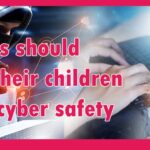Educate your children about the corona virus. With the virus doing rounds across the globe, it is important to make your kids aware and help them stay safe while easing their fears.
As all of us are aware, the Novel Corona virus, commonly known as COVID-19 as named by the World Health Organization (WHO), has been wreaking havoc on the global economy and has created widespread panic across the world affecting 162 countries. While the panic is for good reason – more than 1,88,356 people being infected and over 7,499 fatalities – it is important to note that prevention is possible. Thus, instead of spreading fear in the form of rumors, the need of the hour is to initiate reasonable conversations around the prevention of this virus.
Health experts, too, have stated that there is no need to panic and people need to know the facts before they succumb to rumors and myths that have been widely circulated on social media platforms such as Whats App, Facebook, Instagram, and Twitter. In the event of such situations, educating your children is crucial to create awareness among them about the virus and what they should do to protect themselves and stay safe. Here is how you can talk to your children about the virus:


1. Do away with panic
Before speaking to your child, you must first ensure that you do not exhibit fear. Children tend to pick up on what we show them and starting with fear is not a good approach. Do away with all sorts of panic about the virus and clear your mind before speaking to your kids. Children turn to their parents/guardians for support and assurance, and it would be counterproductive if you are panicking or anxious. Managing your own emotions will help you listen to your child and help them understand the facts.
2. Keep it realistic but avoid too much information
It is important to only divulge the necessary amount of information and tell the kids what exactly they need to know. For example, speak to them about what it is, but in easy to understand terms. Then, tell them what they can do to be safe. Giving them too much information might lead to unnecessary confusion. Assure your child that you are available for them anytime and that they can speak to you without hesitation.
3. Put yourself in your kids’ shoes
Trying to understand what your kid knows about the situation and analyzing their feelings will go a long way in having a seamless conversation with them. For those who have teenage kids, ask them what they know and how they feel about it. If you have younger children, try to make them understand the situation and be honest and clear while answering their questions. More importantly, do your research before speaking to your children because if you are unaware of the exact scenario, you will not be able to assure your child or clear their doubts and fears.
4. Ensure they stay safe
The most important thing is to ensure that your children stay safe. Give them a hand sanitizer to carry, tell them to follow basic hygiene practices like regularly washing their hands with soap, covering their mouths and nose while coughing or sneezing and thoroughly cleansing their hands afterward. Also, tell them to maintain sufficient distance from anyone who appears to have a cold or cough.
The adage – prevention is better than cure – was never more relevant than in this ongoing scenario. Creating awareness among your children and reassuring them will go a long way in not only erasing confusion and anxiety but will also help them know the facts and keep themselves safe by following clean habits.


Meenal Arora, Founder Director











